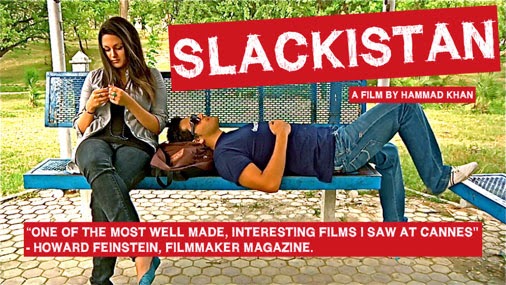As the recent events unravel, I cannot help but wonder if Modi's India is moving more right-wing.
I have to use this as a disclaimer before I get judged for an innate prejudice against India for which we all Indians and Pakistanis are expected to have against each other, with or without our own will. I am a Pakistani who has partially grown up in New Zealand where I mostly grew up with Indians, I learnt about the many festivals of India, the colours, the diversity, the religions and so forth. In a country so far away from my homeland, I felt comfort in the company of people from India. Although I would hear questions that leave leave me spellbound at times,
"Do all women wear Burqa?"
"Why do you oppress women so much?"
I would leave it to the ignorant media on both sides for glorifying stereotypes.
I would come back and be an agent for change in my community of people back home to educate them on how similar Indians and Pakistanis were. For many, I was a naive young men who had not grown up to understand the complexities and realities of Indo-Pak relationship. Needless to say, I would hear similar kind of prejudices against Indians from people in the Pakistan. However, the deteriorating situation in Pakistan after 2001, and India's economy growing on a magnificent rate left me with little confidence in Pakistan. I wanted Pakistan to follow the path of a secular India, where diversity was celebrated.
When Modi was elected as a Prime Minister of India, some of my friends who had been known to me for having rather impolite views of Muslims of the world, were cherishing his win. Oblivious of the Gujrat incident, I googled the reason as to why he was denied a US visa. Although he had been acquitted by the Supreme Court, I knew he had a part to play in a politics of division. I heard a lot of arguments from people who said that he had been given a "clean-slate" from the courts. I just knew, there was something not entirely right.

Years down the line, I am in Pakistan. The Kashmir crisis are at their worst, for which I blame both the countries equally. I then hear the 15th August independence speech by Modi, who expresses his concerns towards the grievances of Baluch people, something I had always argued in favour of. Although how noble his intentions might have been, I could sense a sinister ploy where the Kashmiri demands were sidelined as terror shenanigans (and weren't even mentioned) while separatists were encouraged rather than development and protection in Baluchistan. It only went on to show that the plan was to instigate separatist movements in Pakistan, which is a claim long-held by Pakistan that India uses proxy wars to derail development in Baluchistan, while there was no genuine concern for the people and the development. It was also at a time when China-Pakistan Economic Corridor (CPEC) could offer more economic emancipation to the Baluch people, if security concerns were less intensified. Instead of doing a favour to Baluch, he is using them as means in yet another classical South Asian political manipulative gains. I took on the internet to suggest that this will also excuse Pakistan to interfere in other troubled regions of North Eastern India, the result I got on various internet platforms were extreme and the opposite of my perceptions of a welcoming India.

The trolls on the internet are insulting, inhumane, prejudiced, ignorant and simply ignorant. I got attacked for being a Pakistani, for my existence as a human and derogatory terms such as "Porki" and "Porkistani" were so widely used that I was ashamed for reading them. Is Modi polarising India? Yes he is, I feel he is using Pakistan as a scapegoat of his inability to deal with the problems in his own country. I just read an article yesterday, where a congress female politician countered Defense Minister's Remarks who had earlier on expressed that "going to Pakistan is like going to hell". In a reply on twitter she said, "Pakistan is not hell". Her remarks have been challenged for sedition by a little known lawyer in the local courts. However, the surprising part of the episode is reaction by the Indian media which has labelled her for "praising" Pakistan, while countless comments on social media and under comments section on news website, were even more appalling asking her to move to Pakistan.

The latest right-wing Indian leaning has made me think that Pakistan is perhaps going slightly left. I can say this on record because on the even of 14th August I had attended a function which called on for peace in South Asia, and there were countless known personalities who defended Indo-Pak peace. I never heard any of them being charged for sedition the next day. Perhaps, I am not keeping up with the news so much these days. In any case, the right-wing swing of Modi politics is alarming and destructive, it can start a politics of proxy wars which can affect both our economies. It is high time that our people rise above the manipulative politics on both sides and work towards a united South Asia. We should not give in to hatred which has not given us anything more than animosity in the last 70 years and which has taken countless lives on both sides of the border.





















